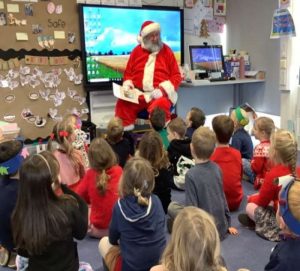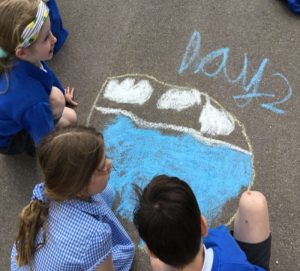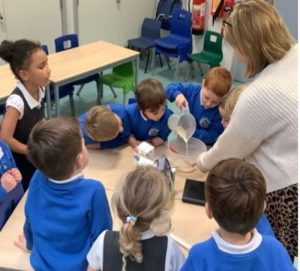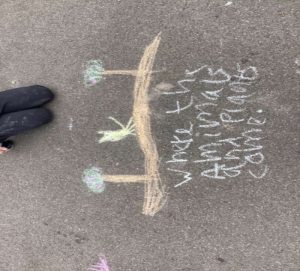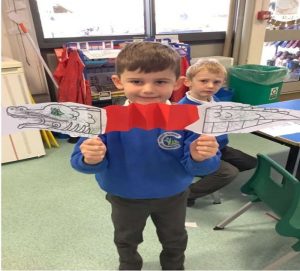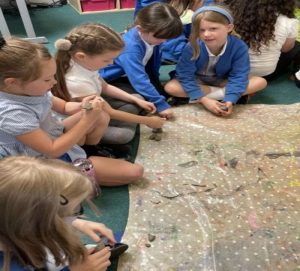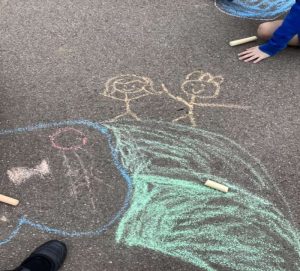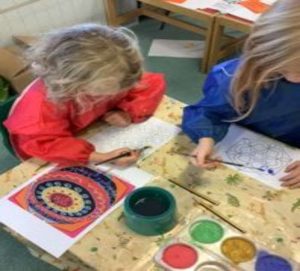RE
Intent:
At Cupernham Infant school, we ensure that children explore and develop an understanding of what religion is. Our teaching and learning in Religious Education (RE) follows the Living Difference IV agreed Syllabus for Hampshire, Portsmouth, Southampton and the Isle of Wight. Through the use of this syllabus, we are able to plan opportunities and experiences for children to explore various religions. We look at what the religion is, who follows that religion, what their beliefs are, how they practice the religion and how this shapes the way they live and act within the world.
Aims:
RE at Cupernham Infant School provides opportunities to promote children’s spiritual, moral, social and cultural (SMSC) development and to promote British Values, particularly the mutual respect for and tolerance of those with different faiths and beliefs, and for those without faith. Developing characteristics of effective learning is a key part of our whole school ethos and values, with our Skills for Success Characters: Bertie Bee, the Confident Collaborator; Coby Caterpillar, the Curious Thinker; Salim Snail, the Resilient Learner; Lola Ladybird, the Independent Researcher and Sidney Spider, the Link Maker. These learning behaviours are promoted and developed upon during RE, just as they are across other curriculum areas.
Implementation:
We follow the Hampshire Living Difference IV Syllabus for RE, which we adapt and make our own to suit our school and the cohorts. This syllabus states that in the Early Years Foundation Stage (Year R) children are to “engage with aspects of what it means to live life in the Christian traditions, along with a depth study of aspects of what it means to live in a second tradition for study at KS1.” Our main religion that we focus on is Christianity and we also teach about Judaism with a light touch on Hinduism. This introduction to these religions is then built upon in subsequent years. When we have children and families from other traditions in the Year group, we celebrate this and include this religion within our RE curriculum.
The RE curriculum is delivered through regular taught lessons as well as during religious based events that can range from one day to a whole week. These sessions are carefully planned to ensure that children are not static within their learning, but that they are immersed in it. We do this by making our lessons active and engaging, for example through role play, whole class discussions, through art and many more exciting ways.
As stated in the Living Difference IV Syllabus the learning within RE “has three important moments: the experiential moment, the intellectual moment and the moment of discernment.” We start with the real and concrete, focussing on children’s experiences. We then introduce and teach new vocabulary and concepts relating to religious traditions, in order to deepen and broaden children’s understanding and knowledge. Finally, we support the children to find meaning and value in this, and “to discern how all this might matter in their own lives.”
Impact:
The children at Cupernham Infant School enjoy their RE learning and like to share their new knowledge and understanding with others. The children are challenged to make links between their own lives and those of the different faiths, by looking at concepts that apply to all walks of life and religions. These are referred to as the GOLDEN THREADS: love, special, belonging and community. This allows the children to see the similarities between the religions and how they are currently living their lives as well as the differences. It encourages the children to compare and relate the concepts to their own personal experiences.
Due to the children being more aware of other religions and faiths, they leave Cupernham Infant School able to show a mutual respect for and tolerance of those with different faiths and beliefs, and for those without faith.
At Cupernham Infant School, we monitor children’s attainment through regular assessment. We do this through careful questioning at the beginning and end of a unit of learning to see the development of their knowledge and understanding. If there are any gaps or misconceptions, we are able to plan to address these.
RE Subject Overview:
If you wish to withdraw your child from all or part of the RE syllabus, then please email the school on adminoffice@cupernham-inf.hants.sch.uk. Thank you.
